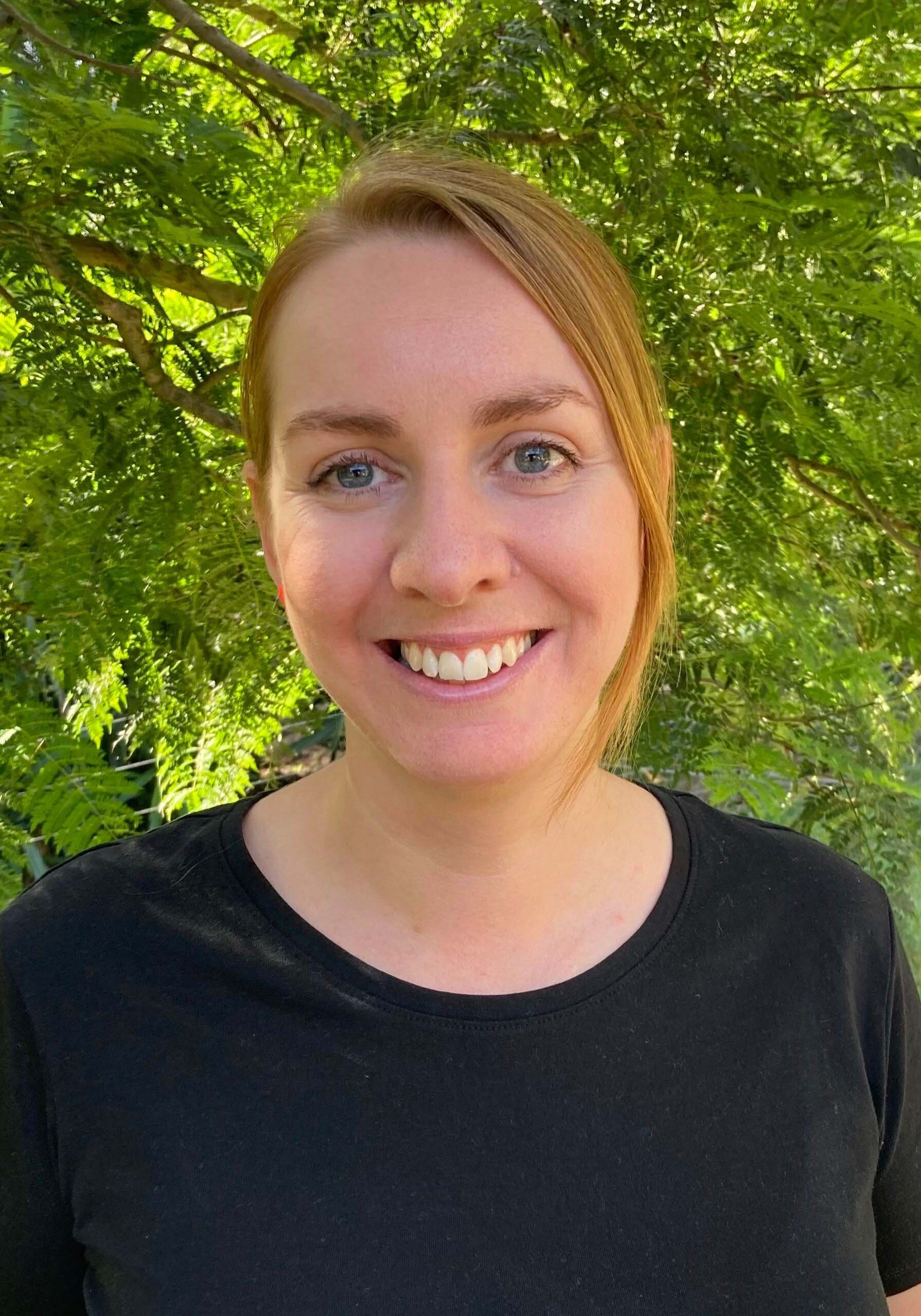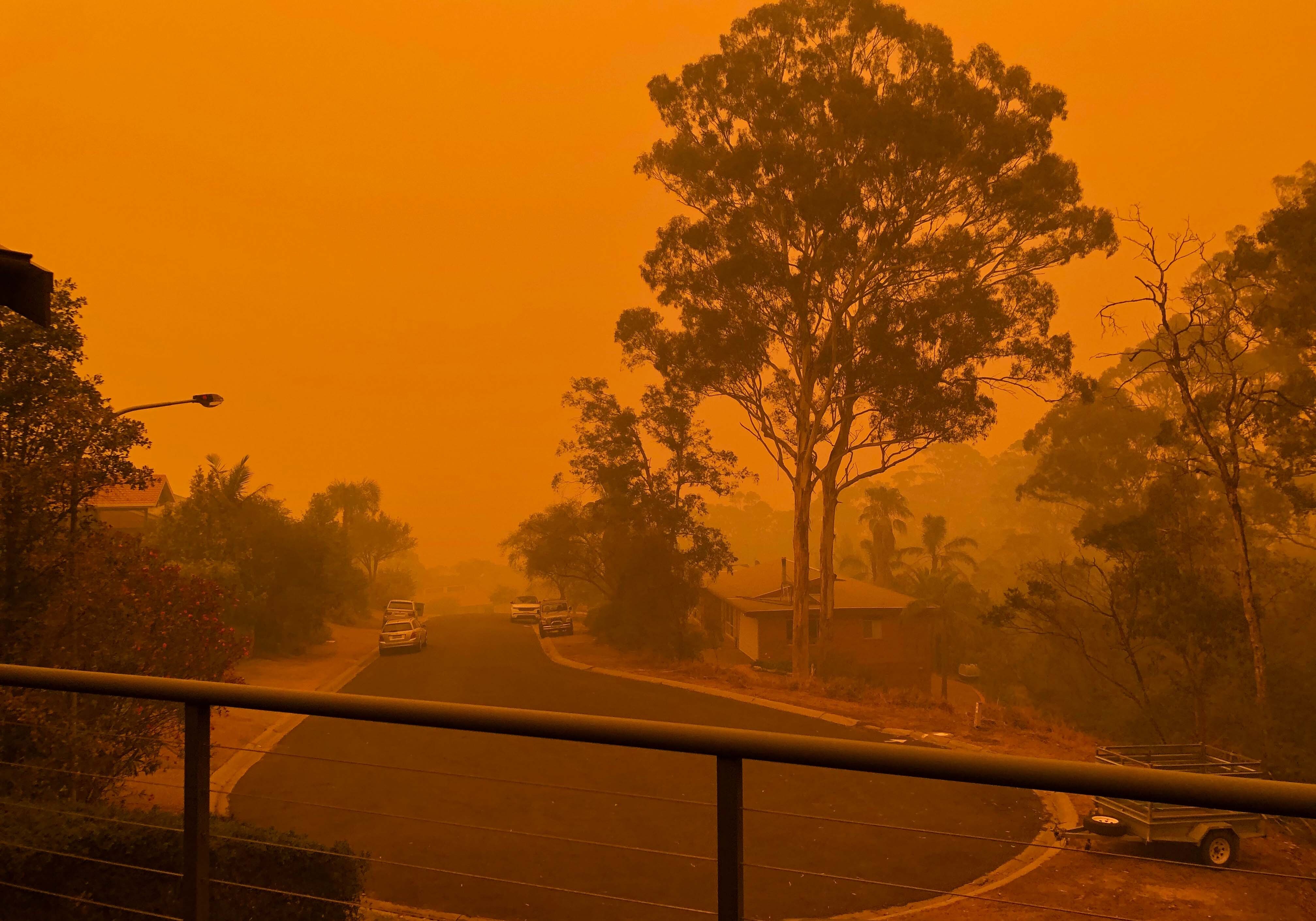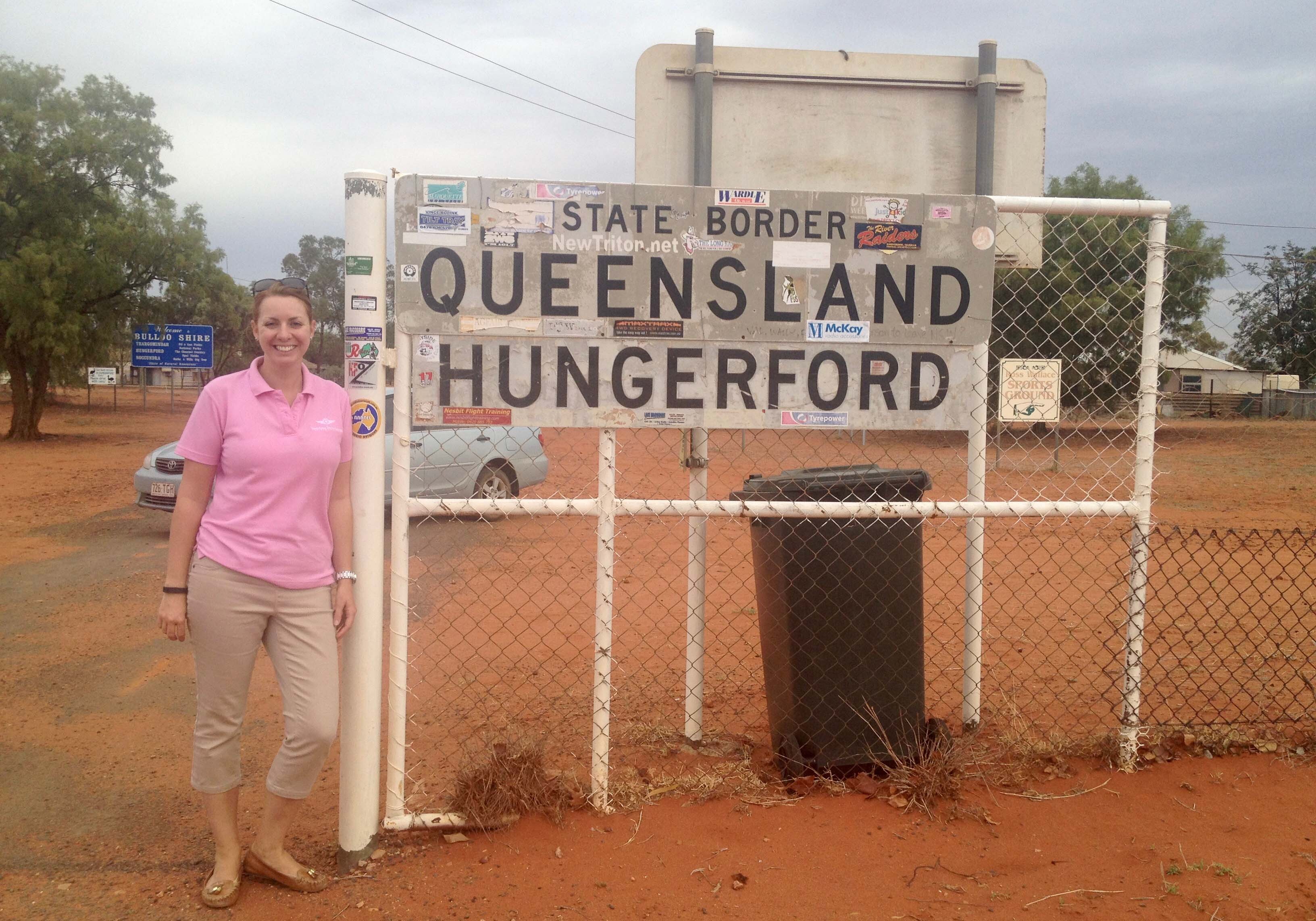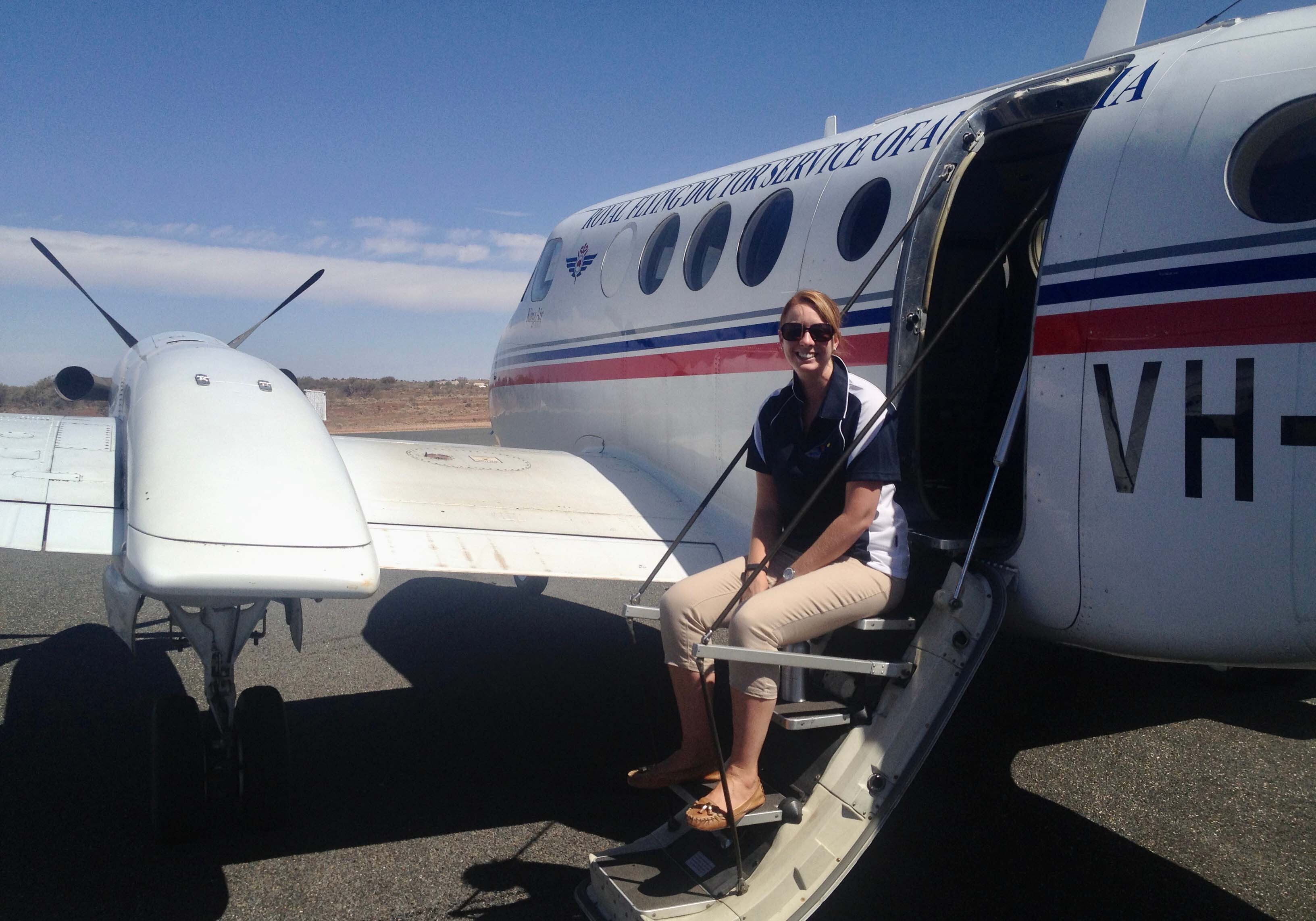This site may not work properly using older versions of Edge and Internet Explorer. You should upgrade your browser to the latest Chrome, Firefox, Edge, Safari, or any other modern browser of your choice. Click here for more information.
Your Stories
This is where we tell your stories, cover topical issues and promote meaningful initiatives.
Working through the bushfires: a psychologist's experiences
Bush Support Line Manager Stephanie Cooper reflects on her experiences living and working on New South Wales’ south coast during the 2019/2020 bushfire season. As her story shows, even those with mental health experience aren’t immune from the challenges posed by remote work and natural disasters.
After completing my Psychology Masters and spending several years working in Her Majesty’s Prison Service in the Northwest of England, I felt that life was missing that ‘special something’. One morning, I decided to emigrate to Australia.
Just like that, I left the north-west of England for the beauty of the Australian outback, accepting a position with the local health district’s mental health service in Broken Hill. The change was profound, yet I immediately loved my new outback surroundings. When I drive west nowadays and experience the flattening landscape and the deepening red of the dirt, I know my heart is home.
After a few years, a chance to lead the mental health and drug and alcohol team with the Royal Flying Doctor Service (RFDS) based out of Broken Hill came about, and I leapt at it. The RFDS had until then been just a show I watched on TV as a kid. Now I got to turn up there for work every day and be a part of the invaluable services and support they offered across the outback.
Meeting my husband and having our first child in Broken Hill was the icing on the cake to an unforgettable adventure. It was with a heavy heart when we drove away from ‘The Hill’ several years after first arriving, choosing a sea change closer to family supports on the south coast of NSW.
A part of me still yearns for the outback; I think it always will. Yet, I have never strayed too far from remote work. Within a year of leaving the outback, I stepped into rural and remote telehealth, as this is where my passion continued to lie.
The 2019/2020 bushfire season
Working and living in a rural coastal community can have its challenges, as I learned firsthand during the 2019/2020 bushfires. During this most intense period of my career, and my whole life, we lived and breathed the fires.
Our surrounding communities experienced the worst of it, while our town watched on, helplessly. At one point, the highways north, west and south were all closed. There was only one way we could go if the fires reached us, and that was east, onto the beaches and into the ocean.
As a family, we rehearsed our bushfire survival plan until we knew it by heart. I swept ash from the garden, prepared sprinklers around our home, and put lights on in the middle of the day – the smoke blocked natural light. We got used to choppers flying overhead on their way to fill their buckets from the surrounding lakes.
I would lie awake at night as my husband worked night shifts for NSW Ambulance.
What if an evacuation alert on the NSW RFS app came through and I didn’t wake up in time? I had it planned out how I would, on my own, get two sleeping children, a dog and the final bags into the car. Could we take our dog to the evacuation centre? Would we have to live in the car outside? The following day, with these questions still harassing me, I would then get up and go to work.
I lived the bushfires in my personal life, and then I was surrounded by them at work.
There wasn’t a break. In my role with the local NGO I was working for at the time, I put my hand up to see immediate bushfire brief intervention referrals. This work rolled into longer-term support for those whose mental health was more significantly affected, an opportunity I valued given my interest and experience working with people who have experienced trauma.
My greatest strength at work was my team. There was a shared understanding and language of what we were all juggling. Some staff members had property and possessions destroyed. Yet they turned up for work to see their clients and support their community. As a team of mental health professionals, we knew we were not invincible and that our profession mixed with our personal lives was hard. Really hard.
It was easy to assume that, as a psychologist, I ought to be immune to the impacts of challenging circumstances. Yet I have never experienced stress at the level I did during the fires. I too had to lean on my team and rely on my support network, and I recognise how fortunate I was to have a psychologically safe and engaging workplace during these unprecedented times.
That is not something every health worker is afforded, and it’s especially challenging the further remote you go, as teams are often dispersed and concentrated.
Lessons learned from the bushfires
Bushfires were relatively new to me, being from the UK. I know that now, because of these challenging experiences, I will be both emotionally and practically better prepared next time.
In a way, my experience during the bushfires is similar to the more recent experiences of our health workforce in Australia. They are working within the stressors, restrictions and challenges of COVID-19, continuously exposed to stressful situations, a risk of infection, and a high-stakes vaccine roll-out. At the same time, COVID-19 is inseparable from their personal lives. This can be suffocating as well as exhausting.
In my situation, I needed awareness of my limits. I had to put boundaries in place with news and social media consumption, as the fires started to consume every waking (and probably dreaming) minute. I am grateful to my profession for teaching me that it’s okay to not be okay at times. Reengaging with social activities, when the fires and smoke allowed, returned some buoyancy, and doing the ‘normal’ things in an abnormal version of our world was beneficial. The knowledge that this period would end, or at least improve, was a source of strength, even though we didn’t know when.
Currently, the bushfires are still very much a part of some people’s daily lives. The wounds are still healing, the scars still tender. Many still face post-disaster challenges, including displacement from homes and rebuilding. For some, these impacts will be long lasting. Entering a new bushfire season exacerbates the trauma, and the planned local fire service burn-offs remind us of what we are trying to avoid. Yet there is also the strengthening of communities and resilience that has grown from this disaster.
On reflection, my most significant learning was that I didn’t listen quite enough to my needs. I still gave that little bit too much of myself to work, failing to balance my personal and professional lives. Not taking annual leave when I needed it is one example. The idea of not turning up for clients filled me with guilt; to take holidays when they were going through their most arduous life journey was simply too selfish, or so it seemed. On reflection, I know I would have had that little more to give had I taken more of an opportunity to fill my own cup with time off and professional/personal breathing space.
The CRANAplus Bush Support Line
I believed I had reached the pinnacle of my career when working with the RFDS, until one day, with the fires still fresh in my mind, I came across an ad for a psychologist position with CRANAplus, entirely by chance.
CRANAplus had already had a presence in my career as a psychologist. Their magazine had provided entertainment during my lunch breaks at remote clinics. I had frequently recommended the Bush Support Line to my health worker colleagues and friends. To inadvertently come across an opportunity to be involved in supporting callers to the Bush Support Line felt too good to be true. Surely you don’t get two pinnacles of your career?
I haven’t looked back. It’s a privilege to support our rural and remote health workforce for an organisation such as CRANAplus. I’m fortunate to be a part of such a dynamic and progressive organisation supporting those who are supporting our communities, alongside such a committed, experienced, and highly motivated Mental Health and Wellbeing team.
The work of our health workforce is demanding enough at the best of times. Difficulties are exacerbated during significant events like drought, floods, bushfires and global pandemics. In the past few years, we have experienced these situations to a significant extent.
They have increased our responsibilities to challenging heights and put greater demands on our endurance.
If anyone is reading this and thinks their self-care plan needs improvement, their professional and personal boundaries need realignment, or their mental health generally requires some attention, try connecting with colleagues and loved ones. If these sources are not available or preferable, reach for the phone and connect with our experienced and passionate team of psychologists on the Bush Support Line by calling 1800 805 391.
We are here 24/7 to support the psychological needs of our hardworking, invaluable and dedicated rural and remote health workforce so that they can turn up and support the health needs of our rural and remote communities.
Find out more about the Bush Support Line and reach out on 1800 805 391 if you need support.



